FIRSTAID POLICY

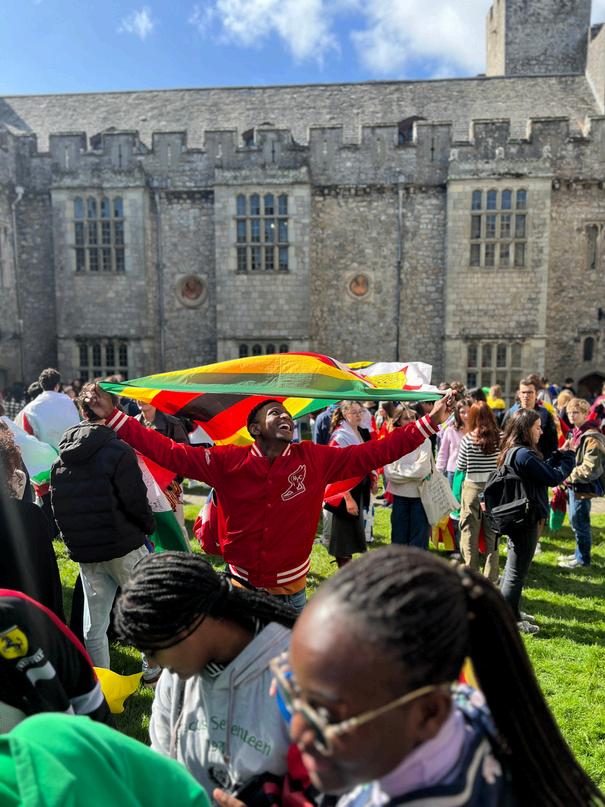

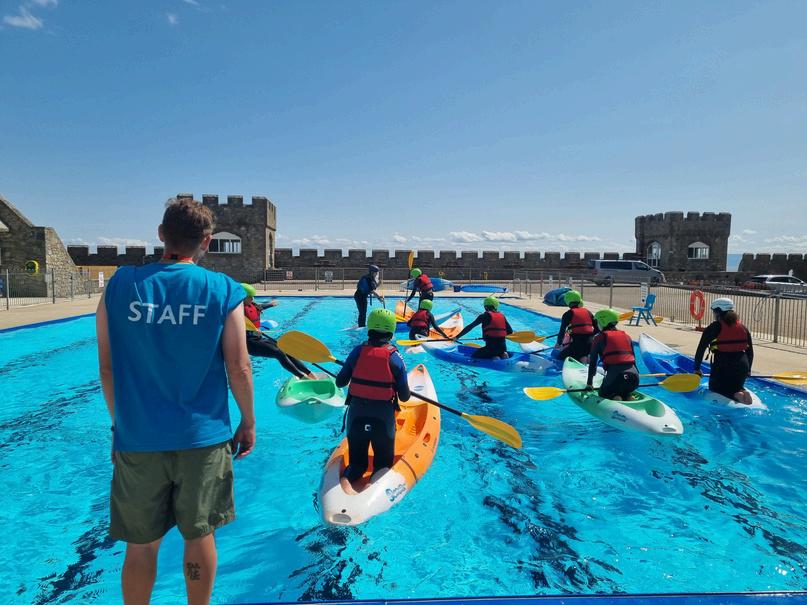

Campus Safety & Security Handbook






Campus Safety & Security Handbook
CATEGORY
POLICY OWNER
DATE & VERSION
APPROVED BY
REVIEW FREQUENCY


Finance & Estates
Director of Operations & Sustainability
15th September 2025 - Version 4.3
Finance & Estates Committee Annual



Policy Purpose
UWC Atlantic (theCollege) lists its First Aid Policy objectives as follows:
The object of firstaid is to offer assistance to anyone injured or suddenly taken ill before expert help fromadoctor or nurse is available, or before an ambulance arrives
1. Carrying out an assessment of First Aid needs to identify the college’s requirements across the broad spectrum of activities undertaken both on and off site
2. Making available suitably trained personnel to act as First Aiders or Emergency First Aiders at all times when people are on the college premises and also off the premises whilst on college visits. (See Appendix 2)
3. Maintaining a dedicated Health and wellbeing Centre at UWC Atlantic.
4 Keeping detailed records of illnesses, accidents and injuries together with an account of any first aid treatment, non-prescription medication or treatment given to a student, employee or visitor The college has procedures in place for ensuring that these records are reviewed regularly to minimise the likelihood of recurrence wherever possible
5. Providing an up to date list of all First Aiders and Emergency First Aiders for all staff and arranging training and refresher training as recommended by the HSE Guidance on First Aid for Schools, including the use of Automated External Defibrillators (AEDs)
6 Providing suitably equipped first aid boxes, AEDs and bags in designated areas, minibuses and for trips off-site. UWC Atlantic staff check and record all first aid equipment quarterly.
7 Reporting to the Health and Safety Executive any incidents that fall within the scope of the Reporting Injuries, Diseases and Dangerous Occurrences Regulations 2013 (RIDDOR).
Policy Statement
This is to be readinconjunction with the Health and Safety Policy. Nothing in this policy should affect theability of any person to contact the emergency services in the event of a medical emergency For the avoidance of doubt staff should dial 999 from a telephone for the

emergency services in the event of a medical emergency and make clear arrangements for liaison with the ambulance service on arrival.
First Aid is the immediate treatment necessary for the purpose of preserving life and minimising the consequences of injury or illness until expert medical assistance can be obtained First aid also includes the initial treatment of minor injuries, which will need treatment by a medical practitioner
The First Aid Policy is reviewed annually by the Finance & Estates Committee of the Board, the Director of Operations & Sustainability and the Head of Atlantic Experience, as part of the Health & Safety review cycle and as part of the whole College development plan. Part of this review process will consider to what extent the policy is being used as an active working document. Campus Safety & Security Handbook
Implementation of the first aid policy covers the following:
● Arrangements
● Staff Training
● Information
● Emergencies and External Medical Assistance
● Off-site Trips
● Hygiene Procedures
● Students/ServiceUsers with significant medical conditions: e g Anaphylaxis, Diabetes, Epilepsy, Asthma, Nocturnal Enuresis
● AssessmentofFirst Aid Needs and Provision
Further informationcanbe found in Appendix 1.

The policy is communicated to the school community electronically on on the UWCA website
The Health and Wellbeing Centre
UWC Atlantic Health and Wellbeing Centre is staffed by nursing staff and is available for students, staff and visitors During term time it is usually open from 0700-1900 Monday to Friday and from 0900-1700 Saturday and Sunday.
● It is the intention of the College to train and assess staff in house. If this is not possible external providers may be contracted to deliver mandatory training.
● The employer has a duty to provide training for their staff if it is deemed to be a requirement of their role and will provide the employee with the appropriate level of First Aid training for them to fulfill that role (See Appendix 2)
● A First Aider is someone who has undertaken training appropriate to the circumstances They must hold a valid certificate of competence in either first aid at work, emergency first aid at work or any other level of training or qualification that is appropriate to the circumstances.
● Emergency first aid at work (EFAW 8 hours/1 days training) training enables a First Aider to give emergency first aid to someone who is injured or becomes ill at work and is provided for staff as appropriate to the activities undertaken and identified by the assessment of first aid needs
● First aid at work (FAW 24 hours/3 days training) training includes the EFAW syllabus and also equips the First Aider to apply first aid to a range of specific injuries and illnesses. It is arranged for key staff and for those staff who supervise students in risk areas and activities or places remote from help
● Other equivalent qualifications are also recognised depending on the individual’s role and responsibilities If unsure this must be checked and clarified with the college’s First Aid training coordinator
Page 5 of 16 and is available
Campus Safety & Security Handbook

● Students and Staff may also undergo in house training as part of the Co-Curricular programme, it is the responsibility of the trainer and assessor to ensure that the individual is aware of the remit and limitations of their award
Retraining and recertification takes place at least every three years
● A list of First Aiders (See Appendix 4) is held in reception (To be coordinated by the Welcome team)
●
All accidents involving students, staff and visitors to the site should be reported appropriately in line with the Accident, Incident and Near Miss Reporting and Recording Policy and Procedures. Where a student has suffered an injury, illness or received first aid treatment then the health and wellbeing centre must be informed at the earliest convenience.
● Where parents and/or carers need to be contacted this will be coordinated in line with the college escalation procedures
● Students and Persons with significant medical conditions such as asthma, anaphylaxis, and diabetes are identified and regularly updated on the college database / relevant medical consent forms so that staff are aware of this information and may seek advice from the Health and Wellbeing Centre / Health Care Professional if required.
Emergencies and External Medical Assistance
1.4
If a Nurse or First Aider judges that further emergency treatment is required, an ambulance will be called without undue delay When necessary, a member of staff will accompany the person to hospital and remain with him / her until family or alternative support is available A seriously injured person should never be left unattended
For low risk, non-residential educational trips, the organiser must ensure that an appropriate first aid kit is taken or available nearby at all times
All residential and activity based off-site trips must be accompanied by at least one appropriately trained first aider, the visit risk assessment will identify the number of First Aiders required and any additional equipment required.

Staff and all First Aiders should take precautions to avoid infection and must follow basic hygiene procedures. Staff should have access to single-use disposable gloves and hand washing facilities, and should take care when dealing with blood or other body fluids and disposing of dressings or equipment
1.7
Students/Service Users with significant medical conditions: e.g. Anaphylaxis, Diabetes, Epilepsy, Asthma, Nocturnal Enuresis
● All relevant staff are made aware of students/service users with significant medical conditions.
● Staff must ensure that they are aware of any students/service user with significant medical conditions in their care When required, any person who requires an epipen must carry an ‘in-date’ epipen at all times Spare epipens are held at the Health and Wellbeing Centre and Reception
● Anyone who suffers from asthma must have access to inhalers at all times Spare inhalers are held at the Health and Wellbeing Centre.
● Anyone requiring insulin must carry their own supply. Spare supplies are held at the Health Centre
● The Health and Wellbeing Staff will provide staff with advice and additional training relating to pupils with significant medical conditions on request
● Staff are responsible for undertaking a risk assessment when taking the pupil/service users on an off-site visit or trip, and ensure that at least one accompanying member of staff has appropriate first aid training.
1.8
● The Assessment of first aid Needs will be reviewed annually
● Where the assessment identifies a low risk of injuries a first aid trained member of staff and a suitable first aid kit is considered sufficient
● Where activities pose a higher risk of injury, for example work with dangerous tools or machinery or expeditions across rough terrain in remote locations an enhanced level of first aid competence will be required by supervising staff supported by additional safety measures to ensure adequate medical assistance.
● There are five automated external defibrillators located around the campus.

APPENDIX 2
List of recommended minimum First Aid cover and levels of staff training where holding a FA qualification is considered mandatory for fulfillment of their primary role.
First Aid at Work (FAW)
1. Any member of staff that has direct pastoral responsibility for students (e.g. House Parents, Night Staff, Health and Wellbeing Centre Staff)
2 Staff involved in supervising high risk estates activities (e g Head of Estates)
3. Outdoor Activity Staff (Or as required by activity NGB’s)
4 Events Staff
5 Domestic/Cleaning Supervisor
6. Reception and contracted security staff
Emergency First Aid at Work (EFAW)
Any member ofstaff that leads or delivers activities (e.g. CAS supervisors)
Faculty Heads
HousekeepingTeam
Estates Team

APPENDIX 3 - First Aid Locations
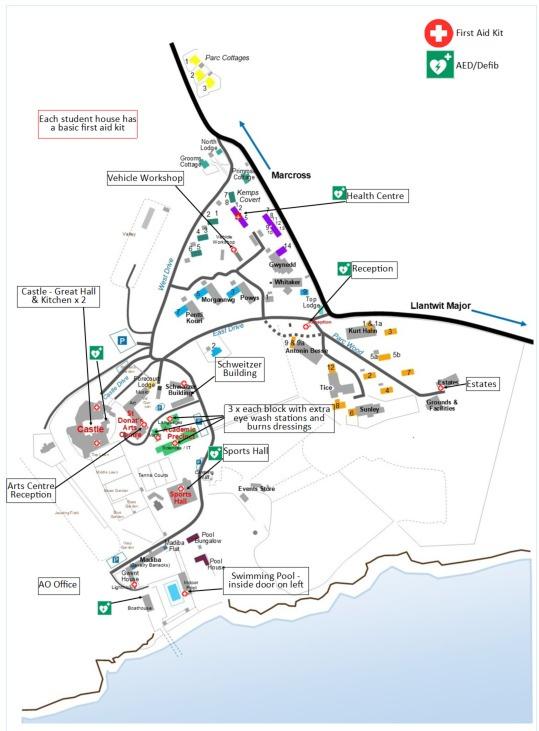

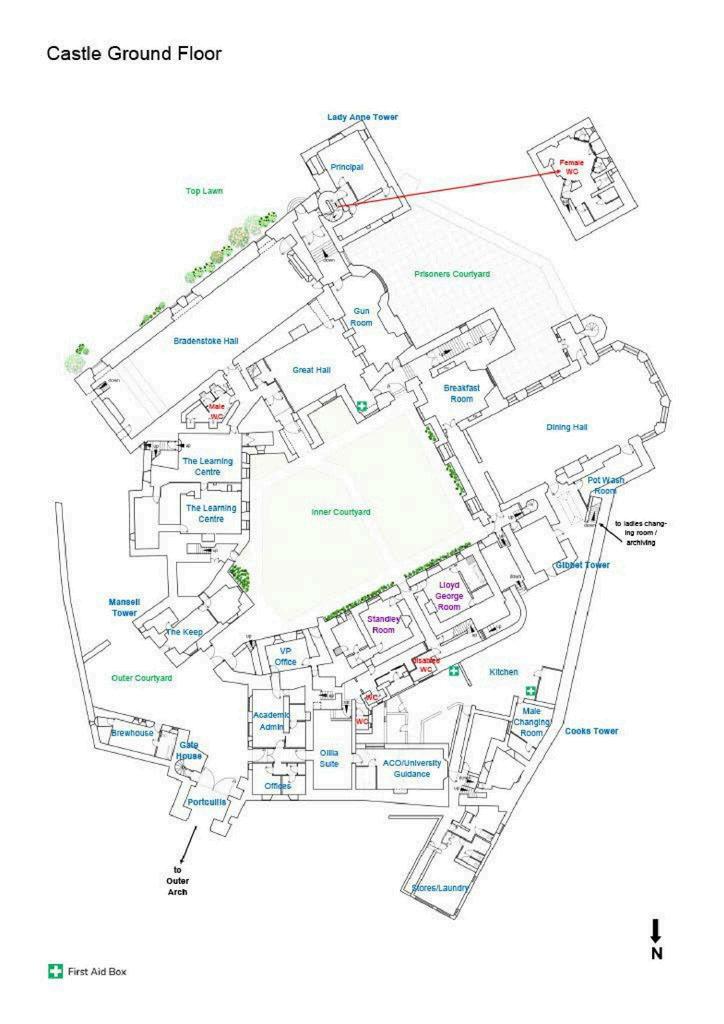

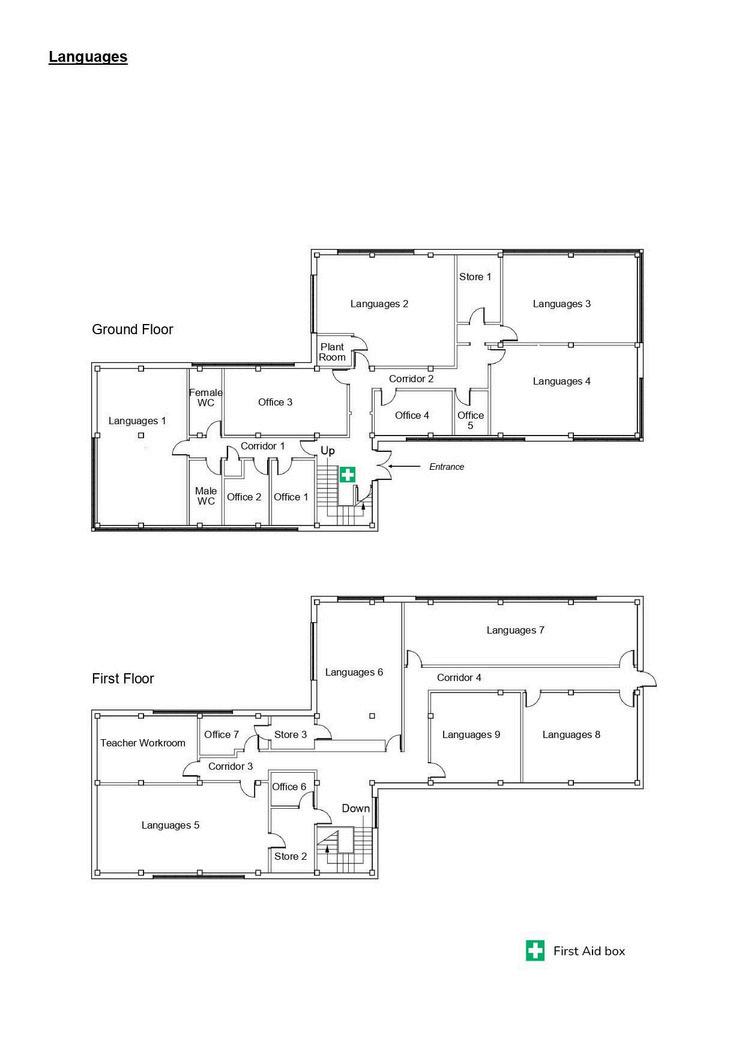

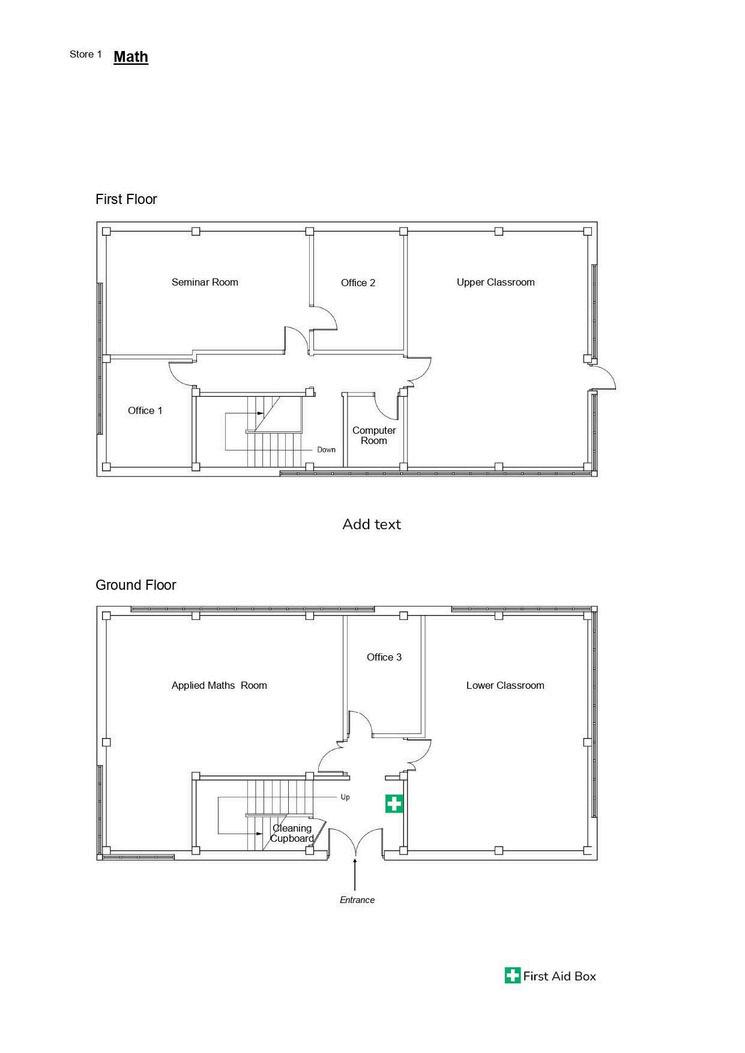

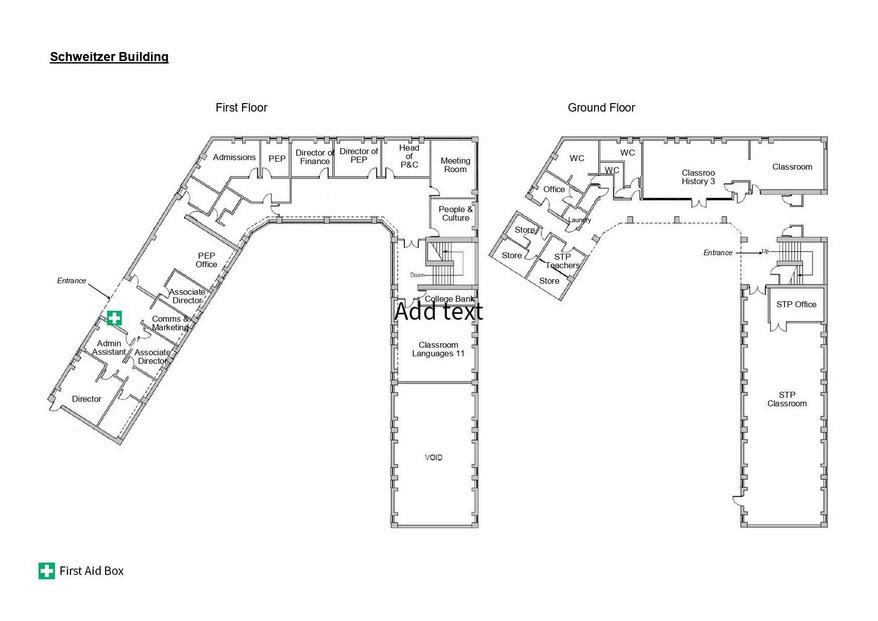
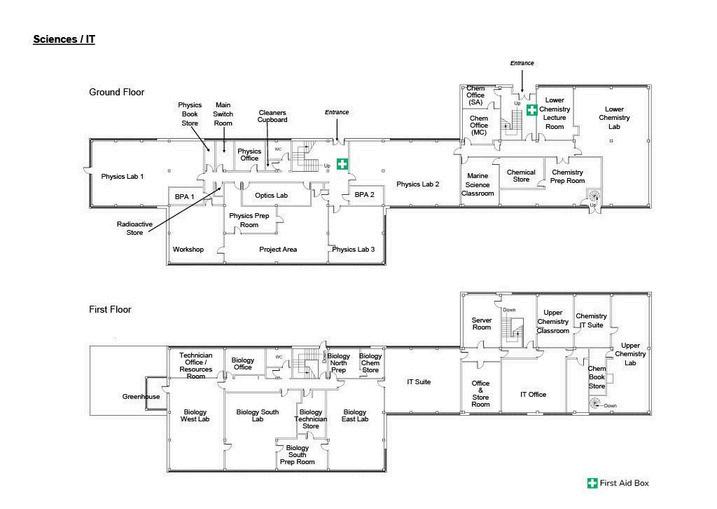
Campus Safety & Security Handbook
NOTE: All staff approval
Staff name
Sarah Littlewood
Ana del Valle
Helen Cook
Megan Newman
Suzanne Watkins
Rafael Crisobal
Tony Karoly
Emma Sprudd
Ben Sprudd
Martin Groves
Nick Janvier
Sov Atkinson
Yordan Demirov
Ryan Denne
Phil Harrington
Chris Vaudin
Hedd Wood
Almudena Blanco
Phil Harrington
College Department
Welcome Team Welcome
Team Welcome Team
Operations Welcome
Team Operations Aex
Nights Nights Academic
Academic Academic/
House Mentor Academic
Academic Academic
Technician Academic
Academic Academic

Type of First Aid
First Aid at work
First Aid at work
First Aid at work
First Aid at work
First Aid at work
Cas Care (Atlantic Pacific)
QNUK Level 3 Outdoor first aid and FAW
First Aid at work
First Aid at work
Emergency first aid at work
Emergency first aid at work
Emergency first aid at work
Emergency first aid at work
First Aid at work
Emergency first aid at work
Emergency first aid at work
Emergency first aid at work
Emergency first aid at work
Emergency first aid at work

First aid Policy
4 3 records are maintained on the Papertrail System List Page 14 of 16 is current as of date of
Campus Safety & Security Handbook
Rob Scott
Isminuir Smith
Nidal Alcade
Graeme Smith
Mich Creber
Matthew Hand
Elvis Karume
Adrian Disney
Emma Pilling
Brett Howard
Alyha Fountain
Ventina Mindoljevic
Lucy Male
Sabrina Crossley
Robyn Ashford
Sam Willis
Alyha Fountain
Sara Creber
Emma Gaze
James Williams
Victoria Bailey
Richard Castle
Helen McFall
Richard Williams
Sam Jones
Academic Academic
Academic Academic/
House Mentor Academic/
House Mentor Academic
Academic Academic
Academic
Academic
Academic
Academic
Academic
Atlantic Experience
Atlantic Experience
House mentor
House mentor/ Librarian
House mentor / academic
House mentor / academic
House mentor / academic
House Mentor
Estates
Housekeeping team leader
Estates
Estates


aid Policy
4 3
Emergency first aid at work
Emergency first aid at work
Emergency first aid at work
First Aid at work
Cas Care (Atlantic Pacific)
Emergency first aid at work
Emergency first aid at work
Emergency first aid at work
Emergency first aid at work
First Aid at work
First Aid at work
Emergency first aid at work
Emergency first aid at work
First Aid at work
First Aid at work
First Aid at work
First Aid at work
First Aid at work
First Aid at work
Emergency first aid at work
First aid at work
First aid at work
First aid at work
Emergency first aid at Work
Emergency first aid at Work
15 of 16
Campus Safety & Security Handbook
Tony Evans
Roseanna Horlick
Carl Bustin
Darren Watson
David Cullinane
Lowri Ellis
Jume Roberts
David Phillips
Gareth Jones
Estates Estates
Estates Estates
Estates
Housekeeping
Welcome Team
Housekeeping Estates


Emergency first aid at Work
Emergency first aid at Work
Emergency first aid at Work
Emergency first aid at Work
Emergency first aid at Work
Emergency first aid at Work
Emergency first aid at Work
Emergency first aid at Work
Emergency first aid at Work